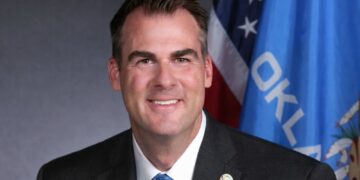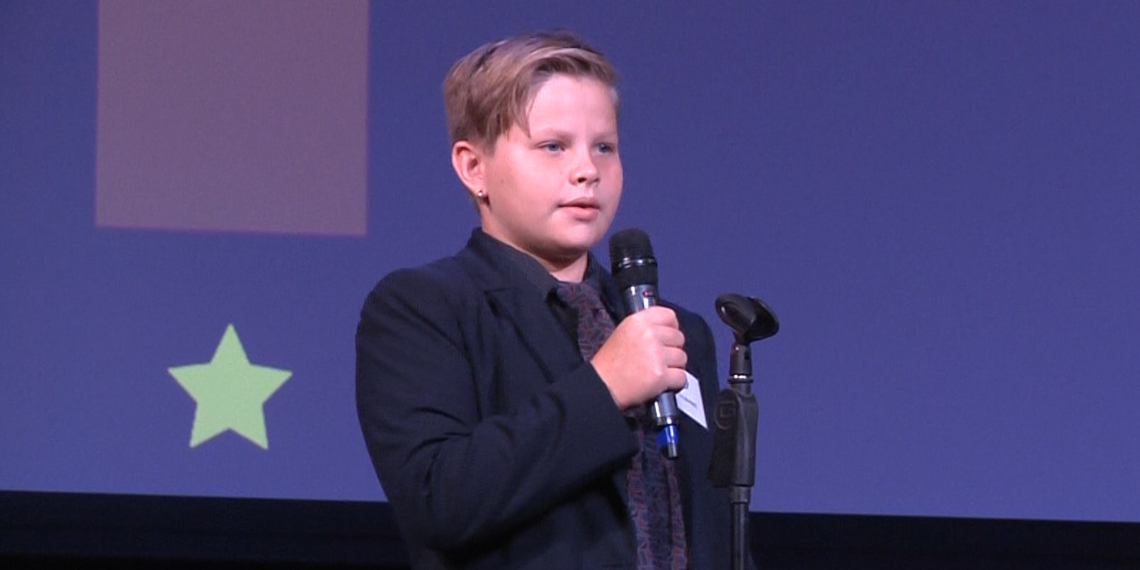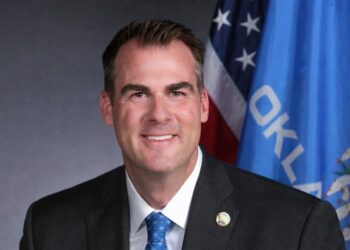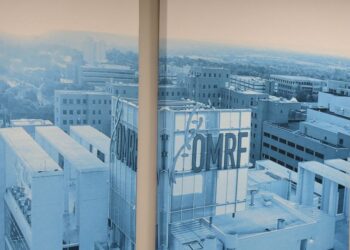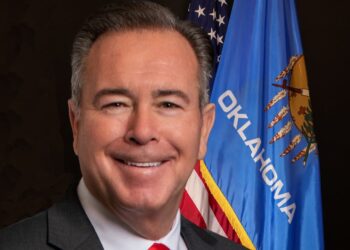OKLAHOMA CITY (OBV) – Oklahoma middle schooler and National Civics Bee competitor Cullen Perez wants people to vote, and he thinks a cash-prize lottery is the right incentive to get people in the voting booth.
Perez, an eighth grader at Lawton MacArthur Middle School in Lawton, is heading to the 2024 National Civics Bee Championship in Washington D.C. on Nov. 12. Cullen won Oklahoma’s 2024 National Civics Bee competition in August, earning the right to compete against other top civics students from across the nation in the national championship.
As part of the state competition in Oklahoma City, Perez and his fellow finalists each answered several challenging questions about civics and gave speeches about the essay each was obligated to write prior to the competition. In his speech, Perez discussed an important concern that affects local, state and national elections: low voter turnout.
While giving his speech, Perez presented numerous ideas for increasing voter turnout. Incentivizing voting was one of those ideas.
“We can incentivize voting – add a little lottery that if you bring your ‘I Voted’ sticker, you get entered in it,” he said. “If nobody’s voting, we can’t have a government that’s from the people, of the people.”
Oklahoma Business Voice spoke with Perez, who said low voter turnout in his hometown inspired his idea.
“It’s just a few people had voted, and I really thought, ‘What can we do to fix this?’ And everybody likes a raffle, and getting into a raffle for free just by voting would probably make voting go up a lot,” Perez said.
Federal law prohibits any individual or entity, including 501(c)(3) nonprofits, social welfare organizations and unions, from paying, offering to pay or accepting payment either for registering to vote or voting in elections that have a federal candidate on the ballot.
Billionaire Elon Musk’s campaign group America PAC, which was established to support former President Donald Trump in the upcoming presidential election, recently stopped awarding $1-million checks to swing state voters. Musk launched a lottery, promising to award $1 million a day up until the Nov. 5 general election to a different random voter who signed his online petition. The Justice Department warned Musk that the lottery could be in violation of the federal election law prohibiting financial incentives.
However, lottery voting incentives have been used in local elections that do not have federal candidates on the ballot.
The Washington Post referenced nonprofits in Los Angeles and Philadelphia using lotteries to increase voter turnout. The voter lottery in Los Angeles offered a $25,000 prize and the one in Philadelphia offered $10,000. The Pamela and Ajay Raju Foundation sponsored the lottery in Philadelphia, which was announced in 2015 and awarded the $10,000 prize to a random voter just for voting in the local mayoral race, according to Time Magazine. The lottery was created to encourage voting after years of low voter turnout in Philadelphia. The Washington Post reported that both the Los Angeles and Philadelphia lotteries increased voter turnout.
A study published in the National Library of Medicine, titled A Cash Lottery Increases Voter Turnout, cited a different study from London, England, which found that a lottery increased voter registration in a city borough election. The article theorizes that because disproportionate numbers of lottery players are from lower socioeconomic status groups, a lottery voting incentive would potentially motivate citizens who are not typically engaged politically to vote.
“For this reason, we might expect a lottery to have a larger impact on subsets of voters who are infrequent voters, particularly in low information campaigns,” the article states.
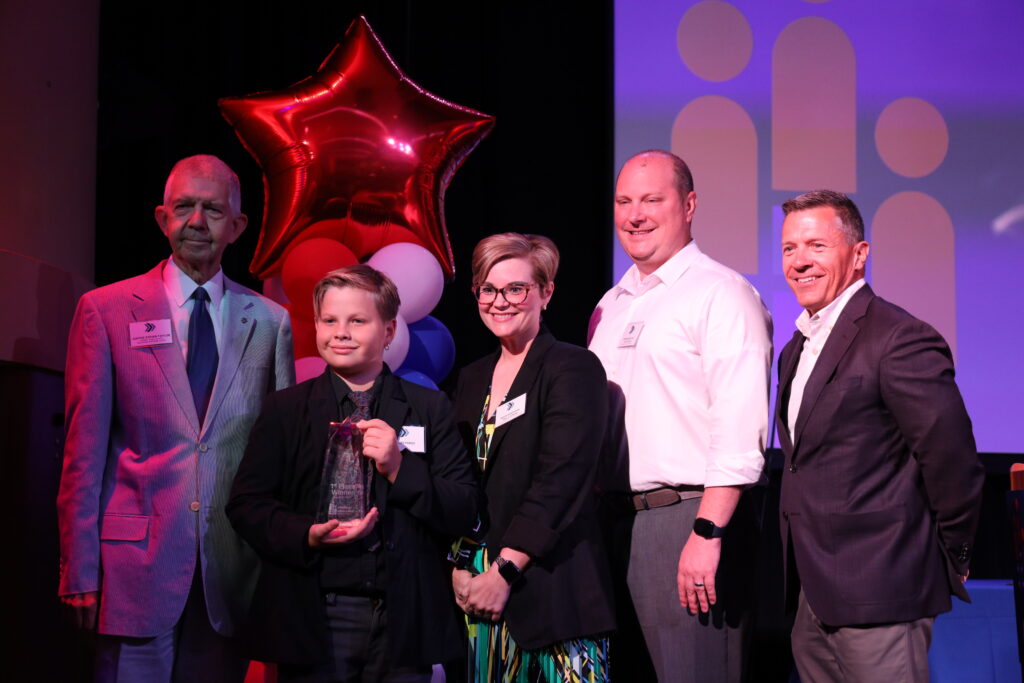
The authors of the Cash Lottery study conducted a field experiment at the University of Massachusetts Amherst, using the university’s annual Student Government Association (SGA) elections to test the theory that a lottery incentive would increase voter participation.
As part of the experiment, 3,779 eligible students received an email reminding them about the election and informing them that by voting they would be entered into a lottery where they would have five chances to win a $300 prize. The experiment included two other groups: students who received no email and students who received an email encouraging them to vote but not mentioning a lottery. The students who were informed about the lottery were the highest percentage of students who voted in the SGA election.
“Among students who were assigned to receive no email, just 15.90% voted. In the group receiving the encouragement email (without the lottery entry), turnout was 17.97%, and in the group receiving an email with the lottery, 21.91% of students voted,” the study states.
The study concluded that “voters can be motivated by a simple lottery to participate in elections.”
Perez’s mother Malinda said she was helping him consider ideas on how to improve voter turnout, including removing barriers that complicate the voting process.
“And Cullen was thinking more about what are the things we can do to incentivize rather than simplify. I was like, ‘Man, that’s a pretty good idea,'” she said.
Perez presented his idea to the three judges who presided over Oklahoma’s National Civics Bee competition: House Majority Floor Leader Jon Echols, Former Oklahoma House of Representatives Democratic Leader Emily Virgin and former Oklahoma Supreme Court Chief Justice Steven Taylor.
Echols said he was incredibly impressed by Perez and his presentation. He said action is needed to make the voting process easier for Oklahomans to engage in.
“We need to make it as reasonable and as easy to vote as possible for all those eligible to vote and that are capable,” Echols said. “[Also], elected officials need to continue to say our elections are safe and secure. We have one of the best election systems in the nation, if not the best. And I think we need to talk about that and let people know their vote matters and they need to be engaged in the civic process.”
Civics education is an essential part of every student’s curriculum and is more vital than ever before, Taylor said.
“Today, with social media and all the news channels and news outlets, there’s a flood of information about government, but unfortunately some of it is not presented in a neutral way. And so, a civics curriculum in schools, I think, is more important than ever to have just some neutral presentation of our form of government and how our government came to be at the time of the founding of our country – an unbiased, nonpartisan, presentation of government and civics and the importance of citizens being involved and interested in government,” Taylor said while speaking with Oklahoma Business Voice. “I think it’s critically important.”
Regarding Perez’s idea for using a lottery to incentivize voting, Taylor said he supports any initiative that legitimately encourages people to sign up to vote.
“A lottery, as long as it was done fairly and the government oversaw that it was fair, I would have a hard time arguing against it because I would be in favor of any legitimate means to get everybody registered to vote,” Taylor said.
Taylor said he is disappointed each time he sees low voter turnout in state legislative and local elections.
“I’m getting really, really tired of seeing elections here in Oklahoma decided by maybe 20 percent of the citizens in a community or in a legislative district. It’s not uncommon that the turnout is less than half the citizens. It’s really discouraging because then everybody complains about what the government’s doing when maybe less than half of them even voted. The old saying goes, ‘You give up your right to complain if you didn’t vote,'” Taylor said. “So his idea of a lottery, if it would help get a big voter registration and a big voter turnout then it’s better than only 15 or 20 percent of the people going to vote.”




